-
Monkeypox virus keeps getting better at spreading among humans
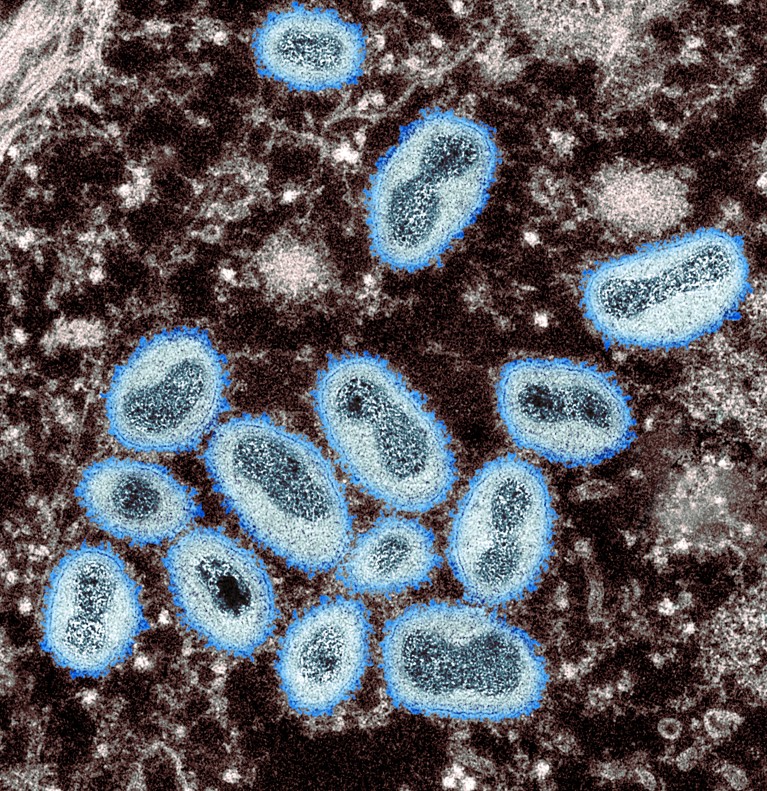
The monkeypox virus (particles shown in this coloured electron micrograph) is evolving.Credit: CDC/Science Photo Library Yet another strain of the virus that causes mpox might be readily spreading from person to person, according to an analysis of the pathogen’s genome. This development could further complicate efforts to halt the spread of the disease in Central…
-
Mainstreaming connectivity science in community-based fisheries management
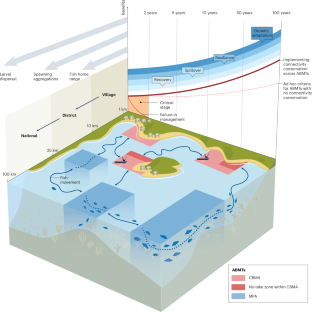
Abstract Functionally connected marine conservation areas are widely recognized as a cornerstone for successful biodiversity conservation outcomes and small-scale fisheries livelihoods. Incorporating fish species movement into fisheries community-based managed areas can catalyse greater conservation and socioeconomic benefits. However, significant gaps exist in aligning small-scale fisheries management with fish connectivity or movement patterns, which can optimize…
-
How to recover from the trauma of a climate disaster
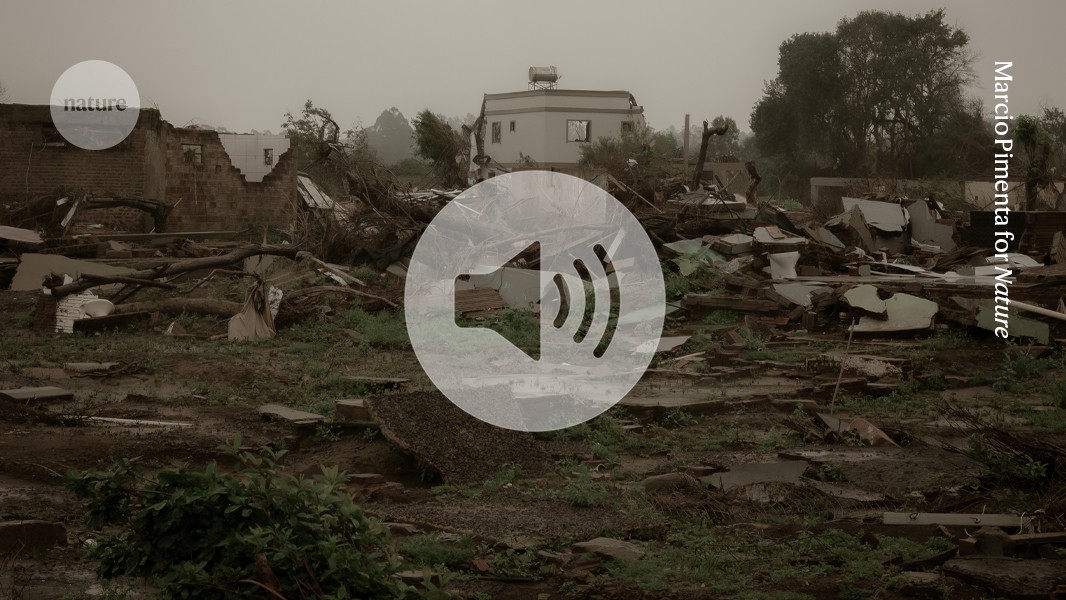
Download the Nature Podcast 30 October 2024 In this episode: 00:48 Rebuilding mental health after the floods Researchers have been investigating the best ways to help people deal with trauma in the wake of a climate disaster. In April and May devastating floods surged across Rio Grande do Sul in the south of Brazil, affecting…
-
Saving Nature Welcomes Dr. Terry L. Root to Science Board
DURHAM, N.C., Oct. 29, 2024 /PRNewswire/ — Saving Nature is thrilled to announce the addition of Dr. Terry L. Root, a Nobel Peace Prize-winning scientist and climate change expert, to its esteemed Science Board. Dr. Root’s extensive experience in climate change, species distribution, and conservation strategies will provide invaluable insights to the organization’s mission of restoring degraded land…
-
Saving Nature Welcomes Dr. Terry L. Root to Science Board
DURHAM, N.C., Oct. 29, 2024 /PRNewswire/ — Saving Nature is thrilled to announce the addition of Dr. Terry L. Root, a Nobel Peace Prize-winning scientist and climate change expert, to its esteemed Science Board. Dr. Root’s extensive experience in climate change, species distribution, and conservation strategies will provide invaluable insights to the organization’s mission of restoring degraded land…
-
The US election is monumental for science, say Nature readers
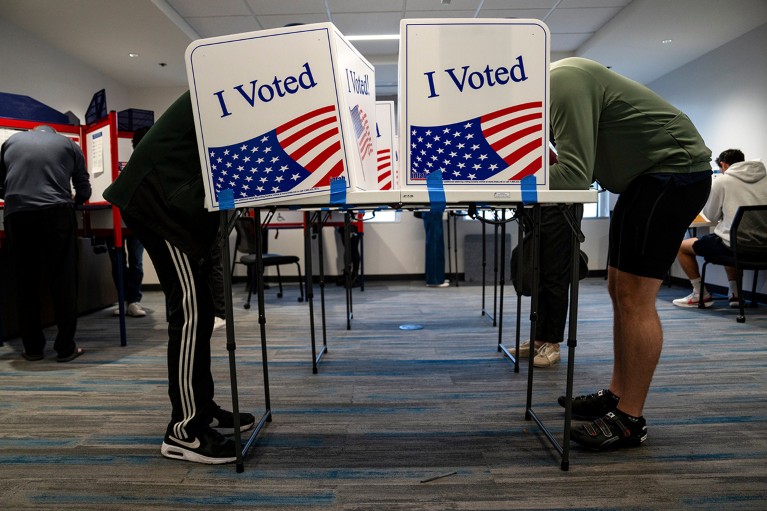
Early voting is already taking place in the 2024 US presidential election. Here, voters mark their ballots at a location in Virginia.Credit: Kent Nishimura/Bloomberg via Getty The US presidential election has divided a nation, but scientists seem to be on the same page. Researchers inside and outside the United States overwhelmingly favour the Democratic candidate…
-
Far-right governments seek to cut billions of euros from research in Europe

Far-right leader Geert Wilders heads the Dutch Party for Freedom (PVV), which is in a coalition government that is seeking cuts to the research budget.Credit: Remko de Waal/ANP via Alamy A surge in far-right parties entering governments across Europe is raising concerns for science. The parties, whose focus is typically immigration, care little about research,…
-
Scientific figures that pop: resources for the artistically challenged

After graduating from the medical and biological illustration programme at Johns Hopkins University in Baltimore, Maryland, Shiz Aoki fulfilled a long-held dream: she launched her own company. Founded in 2010 in Toronto, Canada, Anatomize Studios works with large clients — pharmaceutical companies, magazines and medical professionals with niche needs and capacious budgets. Yet Aoki would…
-
E-waste challenges of generative artificial intelligence
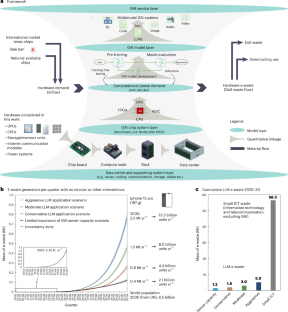
Abstract Generative artificial intelligence (GAI) requires substantial computational resources for model training and inference, but the electronic-waste (e-waste) implications of GAI and its management strategies remain underexplored. Here we introduce a computational power-driven material flow analysis framework to quantify and explore ways of managing the e-waste generated by GAI, with a particular focus on large…
-
The world needs a US president who respects evidence

Kamala Harris and Donald Trump at their first (and only) televised debate, on 10 September.Credit: J Matt/ZUMA Press Wire/Shutterstock Next week, US voters will go to the polls to elect a new president, along with members of the House of Representatives and the Senate. This election will take place at a time of extreme uncertainty,…